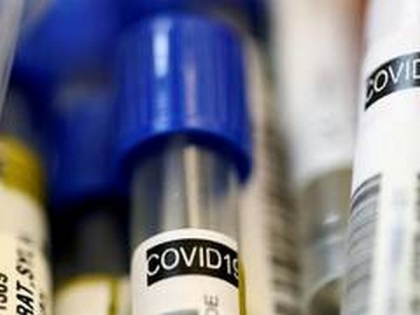Govts, drugmakers under pressure to roll out effective COVID vaccines
By ANI | Published: May 18, 2020 09:31 AM2020-05-18T09:31:11+5:302020-05-18T10:54:18+5:30
Governments and drugmakers are considering ways how to roll out effective coronavirus vaccines and build capacity to make millions of its doses available in the United States starting as soon as this fall. Yet there isn't a guarantee that any of the most advanced vaccine candidates will prove to work safely on such a short timetable.

Govts, drugmakers under pressure to roll out effective COVID vaccines
Governments and drugmakers are considering ways how to roll out effective coronavirus vaccines and build capacity to make millions of its doses available in the United States starting as soon as this fall. Yet there isn't a guarantee that any of the most advanced vaccine candidates will prove to work safely on such a short timetable.
Of more than 100 vaccines in development globally, at least eight have started testing in humans, including candidates from Moderna Inc. MRNA 3.30 per cent and Pfizer Inc. PFE -0.42 per cent At the same time, pharmaceutical giants like Johnson & Johnson, JNJ 1.90 per cent AstraZeneca PLC and Sanofi SA SNY -0.86 per cent are building capacity to make hundreds of millions of doses of their own or their partners' vaccines, The WallStreet Journal reported.
The efforts are part of a larger rush, including at the White House, to line up funding for accelerated testing and expanded manufacturing capacity.
A safe and effective vaccine is the best way to prevent Covid-19, the respiratory disease caused by the new coronavirus, and to curb its transmission, public-health officials say. Drugmakers say they are developing potential coronavirus vaccines at remarkably fast speeds.
Some, like vaccines from Pfizer and Moderna, are based on relatively new technologies that haven't been approved previously.
Once a vaccine is proved in clinical testing to work safely, drugmakers expect the U.S. Food and Drug Administration (FDA) would move quickly to permit its use, even if the agency doesn't have all the evidence it typically collects before granting approval.
However, drugmakers and vaccine experts estimate that a fuller supply to vaccinate the general population might not become available until well into 2021.
"Ideally we'd want seven or eight billion doses the day after licensure, so we can vaccinate the whole world," Walter Orenstein, associate director of Emory University's vaccine center in Atlanta, was quoted as saying by the Journal.
"The likelihood is we won't have enough to vaccinate even the entire U.S. population" when a vaccine first becomes available, he said.
Thus, the prospect of limited initial supplies has triggered manoeuvring over which countries get first dibs.
Compes receiving US federal grants, including J&J, Moderna and Sanofi, are expected to reserve some doses for Americans, according to industry officials.
In the US, a government agency such as the Centers for Disease Control and Prevention would probably decide where newly authorized vaccines should be delivered and which groups should get immunised first, public-health experts say.
Groups likely to be at the head of the line for access are front-line health-care workers and first responders, plus essential workers like grocery, pharmacy, food-supply and mass-transit employees, said Paul Offit, director of the Vaccine Education Center at Children's Hospital of Philadelphia, who serves on a committee with federal and drug-industry officials that is trying to accelerate coronavirus vaccine development.
Johnson & Johnson expects to have some batches of its vaccine ready by early 2021, which Chief Scientific Officer Paul Stoffels said should be sufficient to vaccinate health-care workers globally. The company expects to eventually make more than a billion doses.
While, Moderna is expanding its vaccine production capacity, including via a partnership with Swiss contract manufacturer Lonza Ltd., to make tens of millions of doses a month by the end of this year, and eventually as many as one billion doses a year, the company's Chief Executive Stephane Bancel told the Journal.
( With inputs from ANI )
Open in app